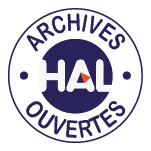Auteur.e des chapitres :
Curriculum vitae :
Dr. Mario Lezoche is an associate professor at University of Lorraine, more specifically at IUT Hubert Curien of Epinal (Technological University Institut) where he teaches object-oriented software engineering, base knowledge systems and database development. He teaches, also, at the Computer Science Engineering School TELECOM Nancy ERP configuration, Enterprise 4.0, Blockchains and Semantic programming languages. He is researcher at CRAN (Research Centre for Automatic Control of Nancy) joint research unit with CNRS. In the CRAN laboratory he is attached to the ISET department (Department Ingénierie des Systèmes Eco-Techniques - Eco-Techniques Systems Engineering Department) and he is co-managing the research project Intelligent System and Objects in Interaction (S&O-2I) on the use of Knowledge formalisation (for example ontology, formal concept analysis, relational concept analysis) for optimising models interoperability of production systems. He graduated at Roma TRE University (Italy) in Computer Science Engineering. He received his PhD in Computer Science Engineering in 2009 and his Post-Doc in 2011 at the University of Lorraine. He has a strong experience in Semantic Web research and in models and semantics for systems interoperability. He works since long time in information systems modelling, semantics modelling and discovery, and database development. His research field is based on information systems modelling for enterprise applications and processes interoperability, with applications in enterprise modelling. He is presently working on a conceptualisation approach and the use of Lattice theory through the Formal Concept Analysis (FCA) method for Enterprise Information Systems interoperability. The latest research works are on an improvement of the FCA method called Relational Concept Analysis (RCA) that focuses on the tacit knowledge extraction through a clusterization approach on multi contexts data structures. He is moreover a regular reviewer for international journals (EIS, FGCS, CII, IJPR). He is guest editor of special issues of international journals. He is author or co-author of more than 40 papers in the field of Automation Engineering, Enterprise Knowledge formalization and Enterprise systems interoperability. He is member of the IFAC Technical Committee 5.3 on “Enterprise Integration and Networking” since 2016.



